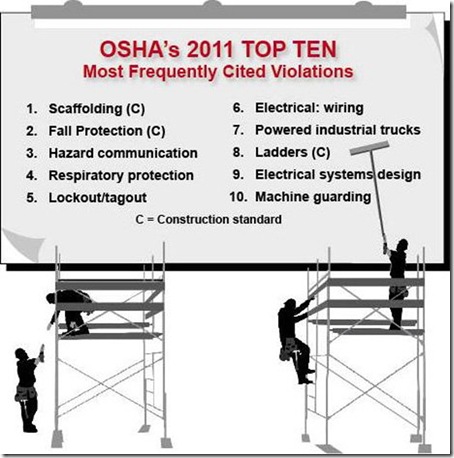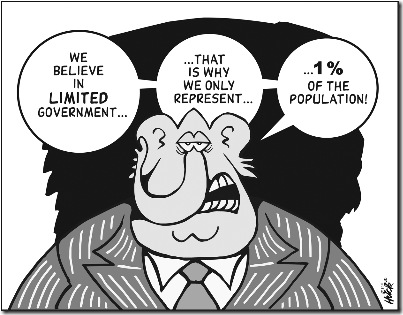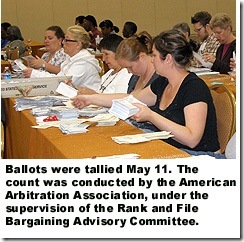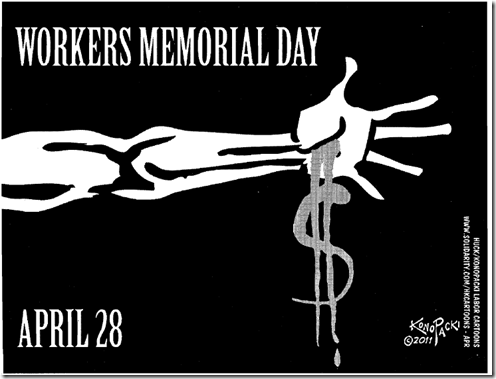| Adams, Sandy FL 24 R
Aderholt, Robert AL 04 R
Akin, Todd MO 02 R
Alexander, Rodney LA 05 R
Amash, Justin MI 03 R
Austria, Steve OH 07 R
Bachmann, Michele MN 06 R
Bachus, Spencer AL 06 R
Baldwin, Tammy WI 02 D
Barletta, Lou PA 11 R
Barrow, John GA 12 D
Bartlett, Roscoe MD 06 R
Barton, Joe TX 06 R
Becerra, Xavier CA 31 D
Benishek, Dan MI 01 R
Berg, Rick ND AL R
Biggert, Judy IL 13 R
Bilbray, Brian CA 50 R
Bilirakis, Gus FL 09 R
Bishop, Sanford GA 02 D
Black, Diane TN 06 R
Blackburn, Marsha TN 07 R
Boehner, John OH 08 R
Bonner, Josiah AL 01 R
Bono Mack, Mary CA 45 R
Boustany, Charles LA 07 R
Brady, Kevin TX 08 R
Brooks, Mo AL 05 R
Broun, Paul GA 10 R
Brown, Corrine FL 03 D
Buchanan, Vern FL 13 R
Bucshon, Larry IN 08 R
Buerkle, Ann Marie NY 25 R
Burgess, Michael TX 26 R
Burton, Dan IN 05 R
Calvert, Ken CA 44 R
Camp, David MI 04 R
Campbell, John CA 48 R
Canseco, Francisco TX 23 R
Cantor, Eric VA 07 R
Capito, Shelley WV 02 R
Carney, John DE AL D
Cassidy, William LA 06 R
Chabot, Steve OH 01 R
Chaffetz, Jason UT 03 R
Christensen, Donna VI DL D
Clyburn, James SC 06 D
Coble, Howard NC 06 R
Coffman, Mike CO 06 R
Cole, Thomas OK 04 R
Conaway, Michael TX 11 R
Cooper, Jim TN 05 D
Cravaack, Chip MN 08 R
Crawford, Eric AR 01 R
Crenshaw, Ander FL 04 R
Cuellar, Henry TX 28 D
Culberson, John TX 07 R
Davis, Geoffrey KY 04 R
DeFazio, Peter OR 04 D
Denham, Jeff CA 19 R
DesJarlais, Scott TN 04 R
Diaz-Balart, Lincoln FL 21 R
Dicks, Norman WA 06 D
Dold, Robert IL 10 R
Donnelly, Joseph IN 02 D
Dreier, David CA 26 R
Duffy, Sean WI 07 R
Duncan, Jeff SC 03 R
Duncan, John TN 02 R
Ellmers, Renee NC 02 R
Farenthold, Blake TX 27 R
Fincher, Stephen TN 08 R
Flake, Jeffrey AZ 06 R
Fleischmann, Charles TN 03 R
Fleming, John LA 04 R
Flores, Bill TX 17 R
Forbes, J. VA 04 R
Fortenberry, Jeffrey NE 01 R
Foxx, Virginia NC 05 R
Franks, Trent AZ 02 R
Frelinghuysen, Rodney NJ 11 R
Gallegly, Elton CA 24 R
Gardner, Cory CO 04 R
Garrett, Scott NJ 05 R
Gibbs, Bob OH 18 R
Gibson, Chris NY 20 R
Giffords, Gabrielle AZ 08 D
Gingrey, Phil GA 11 R
Gohmert, Louie TX 01 R
Goodlatte, Robert VA 06 R
Gosar, Paul AZ 01 R
Gowdy, Trey SC 04 R
Granger, Kay TX 12 R
Graves, Samuel MO 06 R
Graves, Tom GA 09 R
Griffin, Tim AR 02 R
Griffith, Morgan VA 09 R
Guinta, Franklin NH 01 R
Guthrie, Brett KY 02 R
Hall, Ralph TX 04 R
Harper, Gregg MS 03 R
Harris, Andy MD 01 R
Hartzler, Vicky MO 04 R
Hastings, Richard WA 04 R
Hayworth, Nan NY 19 R
Heck, Joseph NV 03 R
Hensarling, Jeb TX 05 R
Herger, Wally CA 02 R
Herrera Beutler, Jaime WA 03 R
Hoyer, Steny MD 05 D
Huelskamp, Tim KS 01 R
Huizenga, Bill MI 02 R
Hultgren, Randy IL 14 R
Hunter, Duncan CA 52 R
Hurt, Robert VA 05 R
Issa, Darrell CA 49 R
Johnson, Bill OH 06 R
Johnson, Samuel TX 03 R
Johnson, Timothy IL 15 R
Jordan, Jim OH 04 R
Kelly, Mike PA 03 R
Kind, Ron WI 03 D
King, Steve IA 05 R
Kingston, Jack GA 01 R
Kinzinger, Adam IL 11 R
Kline, John MN 02 R
Labrador, Raul ID 01 R | Lamborn, Doug CO 05 R
Landry, Jeff LA 03 R
Lankford, James OK 05 R
Larsen, Rick WA 02 D
Latta, Robert OH 05 R
Lewis, Jerry CA 41 R
Lewis, John GA 05 D
Long, Billy MO 07 R
Lucas, Frank OK 03 R
Luetkemeyer, Blaine MO 09 R
Lummis, Cynthia WY AL R
Lungren, Daniel CA 03 R
Mack, Connie FL 14 R
Manzullo, Donald IL 16 R
Marchant, Kenneth TX 24 R
Matheson, James UT 02 D
McCarthy, Kevin CA 22 R
McCaul, Michael TX 10 R
McClintock, Tom CA 04 R
McCotter, Thaddeus MI 11 R
McDermott, Jim WA 07 D
McHenry, Patrick NC 10 R
McKeon, Howard CA 25 R
McKinley, David WV 01 R
McMorris Rodgers, Cathy WA 05 R
Mica, John FL 07 R
Miller, Brad NC 13 D
Miller, Candice MI 10 R
Miller, Gary CA 42 R
Miller, Jeff FL 01 R
Moore, Gwendolynne WI 04 D
Mulvaney, Mick SC 05 R
Murphy, Tim PA 18 R
Myrick, Sue NC 09 R
Neugebauer, Randy TX 19 R
Noem, Kristi SD AL R
Nugent, Richard FL 05 R
Nunes, Devin CA 21 R
Nunnelee, Alan MS 01 R
Olson, Pete TX 22 R
Palazzo, Steven MS 04 R
Paul, Ronald TX 14 R
Paulsen, Erik MN 03 R
Pearce, Stevan NM 02 R
Pelosi, Nancy CA 08 D
Pence, Michael IN 06 R
Petri, Thomas WI 06 R
Pitts, Joseph PA 16 R
Poe, Ted TX 02 R
Pompeo, Mike KS 04 R
Posey, Bill FL 15 R
Price, David NC 04 D
Price, Thomas GA 06 R
Quayle, Ben AZ 03 R
Rahall, Nick WV 03 D
Reed, Tom NY 29 R
Rehberg, Dennis MT AL R
Reichert, David WA 08 R
Renacci, Jim OH 16 R
Ribble, Reid WI 08 R
Rigell, Scott VA 02 R
Rivera, David FL 25 R
Roby, Martha AL 02 R
Roe, David TN 01 R
Rogers, Harold KY 05 R
Rogers, Michael AL 03 R
Rogers, Michael MI 08 R
Rohrabacher, Dana CA 46 R
Rokita, Todd IN 04 R
Rooney, Thomas FL 16 R
Roskam, Peter IL 06 R
Ros-Lehtinen, Ileana FL 18 R
Ross, Dennis FL 12 R
Royce, Edward CA 40 R
Ruppersberger, C.A. MD 02 D
Ryan, Paul WI 01 R
Scalise, Steve LA 01 R
Schilling, Robert IL 17 R
Schmidt, Jeannette OH 02 R
Schock, Aaron IL 18 R
Schweikert, David AZ 05 R
Scott, Austin GA 08 R
Scott, David GA 13 D
Scott, Tim SC 01 R
Sensenbrenner, Jim WI 05 R
Sessions, Pete TX 32 R
Shimkus, John IL 19 R
Shuster, William PA 09 R
Simpson, Michael ID 02 R
Smith, Adrian NE 03 R
Smith, D. Adam WA 09 D
Smith, Lamar TX 21 R
Southerland, Steve FL 02 R
Stearns, Clifford FL 06 R
Stivers, Steve OH 15 R
Stutzman, Marlin IN 03 R
Sullivan, John OK 01 R
Terry, Lee NE 02 R
Thompson, Bennie MS 02 D
Thompson, Glenn PA 05 R
Thornberry, Mac TX 13 R
Tiberi, Patrick OH 12 R
Tipton, Scott CO 03 R
Turner, Michael OH 03 R
Upton, Frederick MI 06 R
Vacant NV 02 R
Vacant NY 09 D
Vacant OR 01 D
Van Hollen, Chris MD 08 D
Walberg, Tim MI 07 R
Walden, Gregory OR 02 R
Walsh, Joe IL 08 R
Watt, Melvin NC 12 D
Waxman, Henry CA 30 D
Webster, Daniel FL 08 R
West, Allen FL 22 R
Westmoreland, Lynn GA 03 R
Whitfield, Edward KY 01 R
Wilson, Joe SC 02 R
Wittman, Robert VA 01 R
Wolf, Frank VA 10 R
Womack, Steve AR 03 R
Woodall, Rob GA 07 R
Yoder, Kevin KS 03 R
Young, C.W. FL 10 R
Young, Todd IN 09 R |











